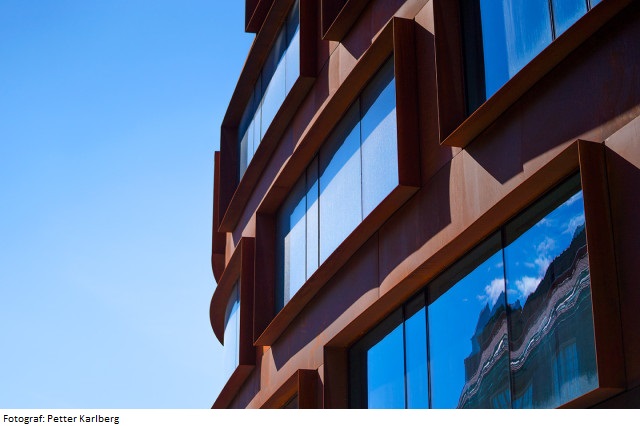The course contains 8-10 thematic lectures around aspects which affect the architectural design. The lectures introduce important questions in the research field, organisational issues related to municipal eldercare, care philosophies, theories about ageing, a historic retrospective, and experience of colour and space. The compulsary exercise is an evaluation of a residence for elderly frail people in use, which is chosen in close collaboration with a municipal eldercare administration.
AD222V Architecture for an Ageing Society 10.0 credits
This course has been discontinued.
Decision to discontinue this course:
No information inserted
Information per course offering
Course offerings are missing for current or upcoming semesters.
Course syllabus as PDF
Please note: all information from the Course syllabus is available on this page in an accessible format.
Course syllabus AD222V (Autumn 2010–)Content and learning outcomes
Course contents
Intended learning outcomes
Lectures, study visits and the compulsary assignement will provide deeper knowledge about architecture perceived from an ageing perspective. The focus is on how architectural properties can act supportive for an elderly frail person in need of daily assistance and care, where the need is caused by severe functional incapacities or a dementia diagnosis. The course’s goal is to provide new knowledge which can be activated in the early phase of the design process, where a generating image is formulated in the creation of new or converted old architecture. The course is entirely internet-based with two compulsory seminars in the beginning and at the end of the course.
Literature and preparations
Specific prerequisites
- 60 hp (1 year of university studies) in the field of architecture, landscape planning, urban planning, social work, or care and nursing
- Documented proficiency in Swedish B and English A or equivalent
Literature
The compulsary list of literature will be announced in the beginning of each new course.
Examination and completion
Grading scale
Examination
- MOM1 - Project/Essay, 7.0 credits, grading scale: P, F
- MOM2 - 80% Participation, 3.0 credits, grading scale: P, F
Based on recommendation from KTH’s coordinator for disabilities, the examiner will decide how to adapt an examination for students with documented disability.
The examiner may apply another examination format when re-examining individual students.
If the course is discontinued, students may request to be examined during the following two academic years.
Other requirements for final grade
- MOM1 - Projekt/uppsats, 7,0 hp, betygsskala: P, F
- MOM2 - 80% deltagande, 3,0 hp, betygsskala: P, F
To obtain the grade passed on the whole course, both moments have to be passed.
Examiner
Ethical approach
- All members of a group are responsible for the group's work.
- In any assessment, every student shall honestly disclose any help received and sources used.
- In an oral assessment, every student shall be able to present and answer questions about the entire assignment and solution.